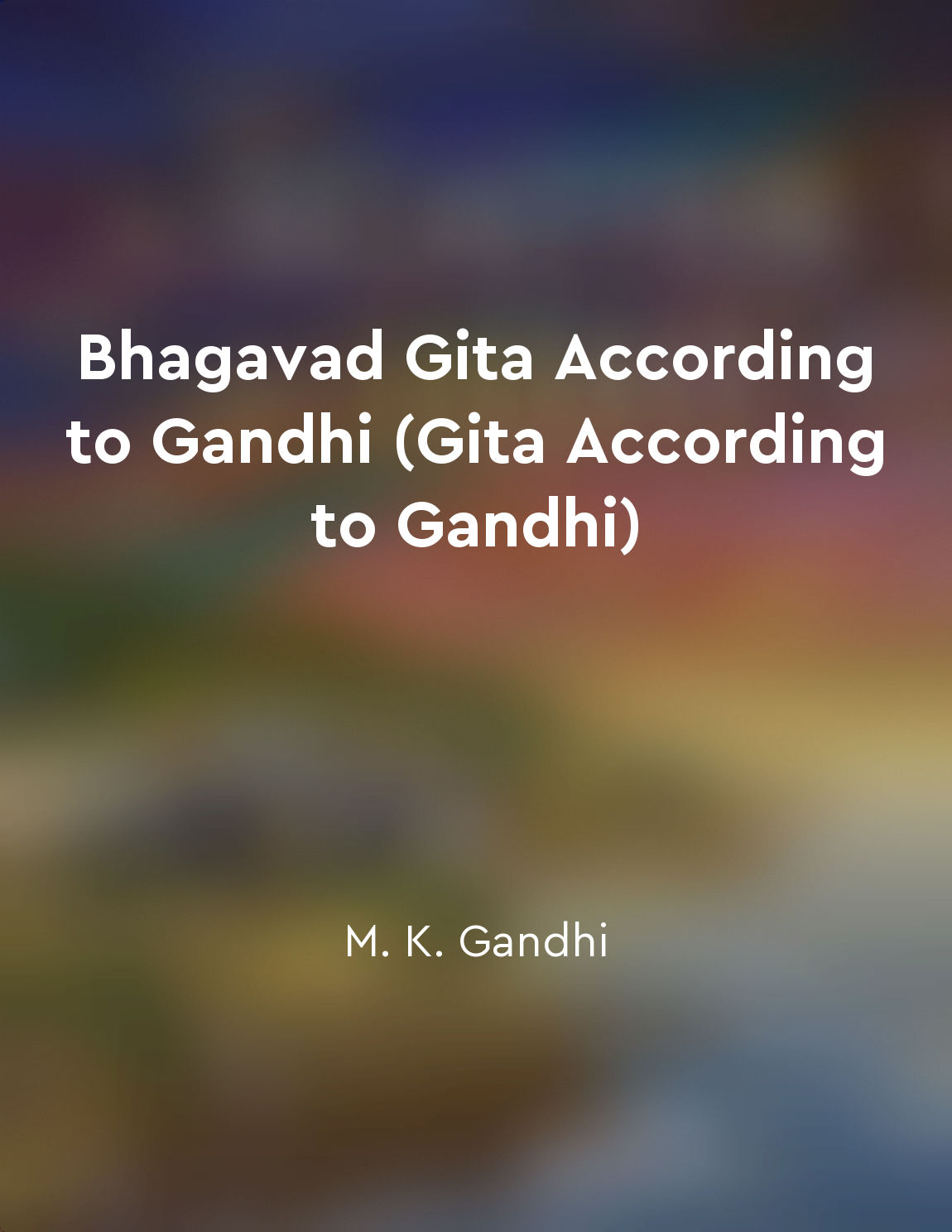Audio available in app
The eternal relationship between the soul and God from "summary" of BHAGAVAD GITA AS IT IS [HINDI LANGUAGE]. by A. C. Bhaktivedanta Swami Prabhupāda
The eternal relationship between the soul and God is explained in the Bhagavad Gita as a bond that transcends time and space. According to the teachings of this sacred text, the soul is eternal and exists beyond the physical body. It is a divine spark that is a part of God and is inseparable from Him. The Gita describes how the soul is on a journey of self-realization and spiritual growth, seeking to reunite with its divine source. This journey involves overcoming the illusions of the material world and realizing one's true nature as a spiritual being. Through various spiritual practices and devotion to God, the soul can experience a deep connection with the divine and ultimately attain liberation from the cycle of birth and death. God, in the Bhagavad Gita, is described as the Supreme Being who is the source of all existence. He is omnipotent, omniscient, and omnipresent, and He is the ultimate reality behind the manifested world. The Gita teaches that God is the loving father of all living beings and that He is always present within our hearts, guiding us on our spiritual journey. The eternal relationship between the soul and God is one of love, devotion, and surrender. By cultivating a deep connection with God through prayer, meditation, and acts of selfless service, the soul can experience the divine presence in its life. This relationship is based on trust, faith, and a deep understanding of God's divine plan for each individual soul.- The Bhagavad Gita teaches that the goal of life is to realize our eternal relationship with God and to attain liberation from the material world. By surrendering to God and following His teachings, the soul can achieve spiritual enlightenment and experience the eternal bliss of union with the divine. This eternal relationship between the soul and God is the foundation of a life of meaning, purpose, and fulfillment.
Similar Posts
The nature of the self
The self is the essence of who we are, beyond the physical body and the mind. It is our true nature, our innermost being that i...

Stay connected to the inner self
The Bhagavad Gita teaches us the importance of staying connected to our inner self. This connection is vital for navigating the...
The importance of discipline and practice
Discipline and practice are essential aspects of leading a purposeful and meaningful life, as emphasized in "The Bhagavad Gita....
Accept hardships as opportunities for growth
Accept hardships as opportunities for growth is a fundamental concept discussed in the Shrimad Bhagwat Geeta. According to the ...

Importance of spiritual knowledge
Spiritual knowledge is described as the most important knowledge in the Bhagavad-Gita. This knowledge is not ordinary knowledge...
Ganatra's meticulous attention to detail enhances the reader's experience
Ocean Ganatra's dedication to precision shines through in his meticulous attention to detail throughout the book 'Bhagwat Geeta...
The Geeta teaches the path to ultimate liberation and union with the divine
The Bhagavad Gita, often referred to simply as the Geeta, is a sacred scripture that imparts profound wisdom and guidance on ho...
Pronounce words and names in foreign languages for better comprehension
The pronunciation of words and names in foreign languages is crucial for better comprehension. When we come across unfamiliar t...
Embrace detachment
The concept of detachment is a central theme in the teachings of the Bhagavad Gita. Detachment does not mean that we should cut...

Detachment from material desires
The concept of detachment from material desires is a fundamental teaching in the Bhagavad-Gita. It emphasizes the importance of...


